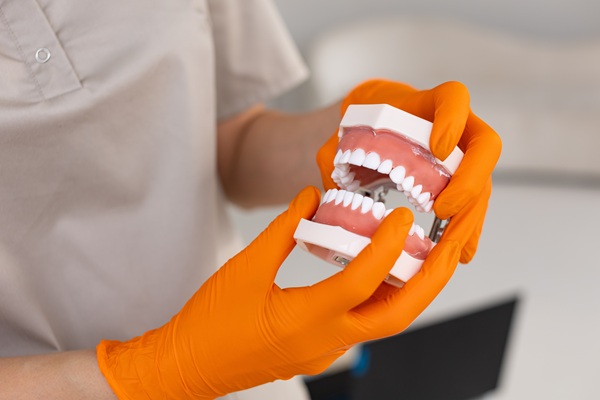6 FAQs About Full Mouth Reconstruction

Considering a full mouth reconstruction? This treatment is recommended when individuals have missing or severely decayed teeth. Read on to learn more about what is involved in this type of oral restoration.
6 Things to know about full mouth reconstruction
Outlined below are a few common questions and answers about full mouth reconstructions. It can be helpful to review the following information when considering this treatment.
1. What does a full mouth reconstruction involve?
A full mouth reconstruction involves replacing, rebuilding, and reconstructing the oral cavity through different procedures, such as bridges or implants. Functionality, esthetics, and form are all the dentist's focus when performing a full mouth reconstruction.
2. How long does the full mouth reconstruction process take?
The process varies for each person, however, most individuals require multiple appointments in order to get the desired results. In some cases, the dentist may be able to successfully reconstruct the oral cavity in one visit, however, other times, multiple appointments over a few weeks or months may be necessary.
3. What is recovery from full mouth reconstruction like?
Recovering from varies per patient, however, for the most part, there are a few general expectations that are good to be aware of. Individuals will experience discomfort, sensitivity, swelling, and inflammation, all of which require constant attention to remedy and manage. General dentists recommend the following for a successful recovery:
- Rinse with saltwater or a prescribed rinse to keep the mouth clean and disinfected
- Eat a diet consisting of soft foods or liquids
- Avoid touching the wounds
- Take pain medication, whether prescribed or over-the-counter
- Change gauze carefully and gently
4. Is a full mouth reconstruction painful?
It can be, yes. However, general dentists want individuals to understand that the pain is temporary and can be managed with medication and at-home remedies. Individuals will not feel pain during the full mouth reconstruction itself, but rather after the procedures have been completed. The dentist can prescribe pain medication, as well as oral rinses to keep the mouth clean during the healing process. Rinses eliminate the need to brush as usual, which may induce further discomfort.
5. Are there any benefits to full mouth reconstruction?
The benefits of full mouth reconstruction include the ability to replace an entire arch of teeth all at once, which can be convenient for individuals looking to get everything done at one time. Additionally, the treatment can significantly restore bad oral health which is oftentimes the result of having missing teeth.
6. What are the risks of full mouth reconstruction?
There are not a lot of risks associated with full mouth reconstruction, however, general dentists do like patients to know that there is the potential for complications to occur. Most treatments involve the placement of dental implants in order to replace missing teeth. Dental implants are almost always successful, but in some rare situations, they may be rejected by the body, which can result in discomfort and a need for more in-depth treatment.
Getting started with full mouth reconstruction
When looking to learn more about the full mouth reconstruction process, it is best to consult directly with a general dentist. Further questions can be appropriately addressed and an evaluation can be done in order to identify the best place to start. Reach out today get scheduled for an appointment.
Request an appointment here: https://www.thesimplesmiles.com or call Simple Smiles at (423) 888-0204 for an appointment in our Johnson City office.
Check out what others are saying about our dental services on Yelp: Full Mouth Reconstruction in Johnson City, TN.
Recent Posts
Cosmetic dentistry uses both art and science in its many treatments. It focuses on enhancing your oral health, as well as your appearance. The advancements in this field help you achieve your smile goals. Here are the details on how cosmetic dentistry can improve your smile.Each implant provides a tooth replacement that can blend well…
Are you looking for more information about denture adhesives? When you need to wear dentures so you can achieve good oral health, it is important to understand everything there is to know about dentures, including proper denture care. Denture care also includes potentially wearing denture adhesives.According to the Food and Drug Administration, in most cases,…
Periodontal gum disease treatment helps prevent the progression of gum disease, which protects your oral and overall health. Periodontal disease, commonly referred to as gum disease, affects the tissues supporting the teeth, potentially leading to tooth loss if left untreated. A peridontist's early diagnosis and treatment of this condition can significantly improve your long-term gum…
Dental fillings are not enjoyable procedures, however, they are often necessary to restore teeth that are in bad shape. Thankfully, there are a few ways that patients can avoid having to get a dental filling altogether. Want to learn how to avoid getting a dental filling? This article outlines some important information that can be useful when…


